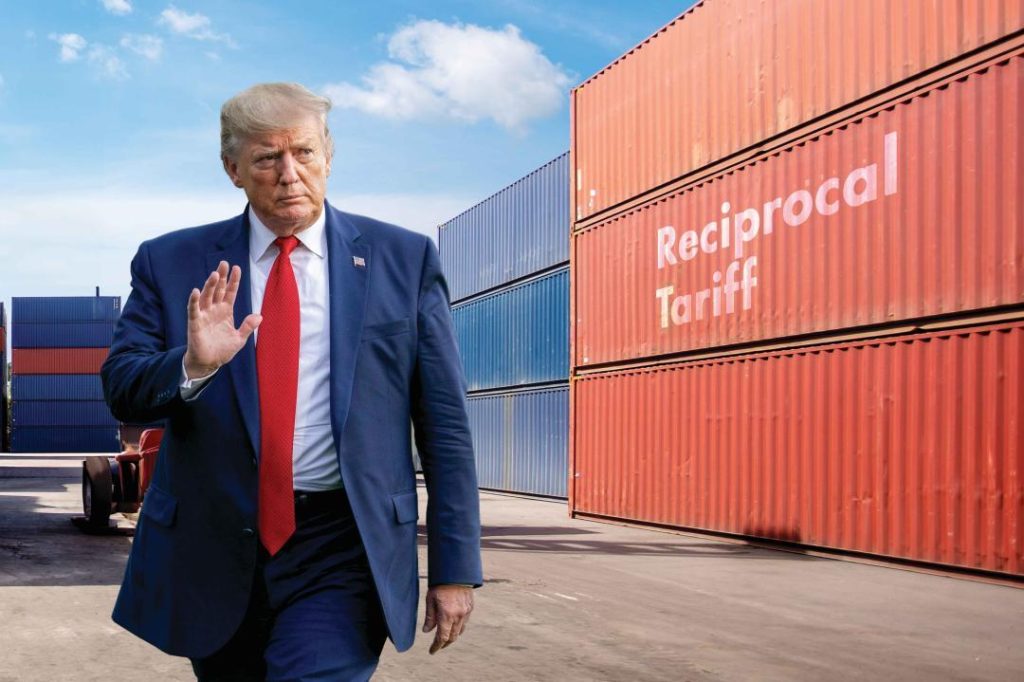
The Great Tariff War: Disruption, Diplomacy, & the Future of Trade
The ongoing trade tensions between the United States and various countries have created a global trade war, with tariffs being imposed on goods and services worth billions of dollars. The latest development in this saga is the announcement of new tariffs by the US on various products, including steel and aluminum, which has sent shockwaves across the globe. In this article, we will explore the impact of the tariff war on global trade, the opportunities that have emerged for countries like India, and the future of international trade.
Background of the Tariff War
The tariff war began in 2018 when the US imposed tariffs on steel and aluminum imports from several countries, including China, Canada, and the European Union. The move was aimed at protecting American industries and reducing the country’s trade deficit. However, the tariffs were met with retaliatory measures from these countries, leading to a full-blown trade war.
The US has continued to impose tariffs on various products, including goods from China, the EU, and other countries. The tariffs have been imposed under the pretext of national security, intellectual property theft, and unfair trade practices. The latest escalation occurred in August 2019, when the US announced new tariffs on $300 billion worth of Chinese goods, effective from September 1.
Impact on Global Trade
The tariff war has had far-reaching consequences for global trade. The tariffs have led to higher costs for consumers, reduced exports, and increased uncertainty for businesses. The trade war has also disrupted global supply chains, with many companies re-evaluating their sourcing strategies and investing in alternative supply chains.
The tariffs have also had a significant impact on the global economy, leading to a decline in international trade, reduced economic growth, and increased inflation. The World Trade Organization (WTO) has warned that the trade war could lead to a global recession if it is not resolved.
Opportunities for India
Amid the disruption caused by the tariff war, India has emerged as an alternative to China as a manufacturing and logistics hub. The country’s strategic location, skilled workforce, and business-friendly policies have made it an attractive destination for foreign investors.
India’s emergence as a manufacturing hub is driven by its competitive labor costs, favorable business environment, and government initiatives such as the Make in India program. The country has also made significant investments in infrastructure development, including airports, ports, and highways, which has improved its connectivity and logistics capabilities.
The tariff war has created opportunities for India to strengthen its position as a global manufacturing and logistics hub. Indian companies are now looking to diversify their supply chains and reduce their dependence on Chinese goods. The country’s textile, electronics, and pharmaceutical industries are expected to benefit from this trend.
Diplomacy and the Future of Trade
The tariff war has highlighted the need for diplomacy and cooperation in international trade. The US and China have been engaged in trade talks for several months, but the negotiations have been slow and inconclusive. The US has accused China of not fulfilling its commitments to reduce its trade deficit and has threatened to impose further tariffs if the talks fail.
The EU and other countries have also been trying to negotiate trade agreements with the US, but the negotiations have been slow and difficult. The US has imposed tariffs on EU goods, including wine and cheese, which has led to retaliatory measures from the EU.
The future of international trade is uncertain, with the tariff war showing no signs of abating. However, there are opportunities for countries like India to strengthen their position as global manufacturing and logistics hubs. The key to resolving the tariff war lies in diplomacy and cooperation, with countries needing to work together to find mutually beneficial solutions.
Conclusion
The tariff war has disrupted global trade, created opportunities for countries like India, and highlighted the need for diplomacy and cooperation in international trade. The US and China have been engaged in trade talks for several months, but the negotiations have been slow and inconclusive. The EU and other countries have also been trying to negotiate trade agreements with the US, but the negotiations have been slow and difficult.
The future of international trade is uncertain, but there are opportunities for countries like India to strengthen their position as global manufacturing and logistics hubs. The key to resolving the tariff war lies in diplomacy and cooperation, with countries needing to work together to find mutually beneficial solutions.
References:
https://www.logisticsoutlook.com/supply-chain/the-great-trump-tariff-war






